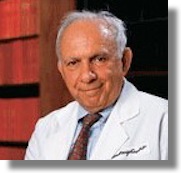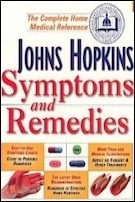
Simeon Margolis
Fellow
Baltimore Maryland, USA
Simeon Margolis, MD, PhD, received his medical degree and doctorate from the Johns Hopkins University School of Medicine. After completing his internship and residency at Johns Hopkins Hospital in 1965, he was appointed as an Assistant Professor in Medicine. He is currently Professor Emeritus of Medicine and Biological Chemistry at the Johns Hopkins University School of Medicine. His research has centered in the laboratory on the control of cholesterol metabolism as well as in clinical studies in regulation of blood glucose levels. He was the Director of the Division of Endocrinology and Metabolism in the Department of Medicine from 1968 to 1981 and from 1985 to 1990. He served as the Associate Dean for Academic Affairs at Johns Hopkins from 1984 to 1990 and subsequently was Associate Dean for Faculty Affairs for 18 months.
Dr Margolis has been a member of various committees for the Department of Health, Education, and Welfare, including the Metabolism Study Section, General Clinical Research Centers, National Diabetes Advisory Board, and the Arteriosclerosis Specialized Centers of Research Review Committees. In addition, he has acted as a member of the Endocrinology and Metabolism Panel of the US Food and Drug Administration.
A former weekly columnist for The Baltimore Sun, Dr Margolis has served for more than 20 years as Medical Editor of The Johns Hopkins Medical Letter: Health After 50. Dr. Margolis has lectured to medical students, physicians, and the general public on a wide variety of topics, such as the prevention of coronary heart disease, the control of cholesterol levels, the treatment of diabetes, and “alternative medicine.” He has also written numerous white papers for Johns Hopkins on a wide variety of medical topics. For the past four years, Dr Margolis has had regular blogs on Yahoo! Health.
Selected Books:
The Johns Hopkins Medical Guide to Health After 50, editor (Black Dog & Leventhal, 2006). Evidence-based medical guide covering more than 100 of the most common ailments associated with aging.
Johns Hopkins Complete Home Guide to Pills & Medicines, editor (Black Dog & Leventhal, 2005). A guide to more than 700 generic and 2,300 brand-name prescription and over-the-counter drugs. The synopses are written in accessible language for the general public. The information in this book is backed by the reputation of Johns Hopkins, which was recently rated the number-one US medical center by US News & World Report for the 14th year in a row.
Johns Hopkins Symptoms and Remedies: The Complete Home Medical Reference, editor (Rebus, 2003). Consumer text lists more than 500 symptoms and conditions and potential diagnoses alphabetically. Also provides a comprehensive explanation of each disorder, additional information about symptoms, causes of the disorder, how it is diagnosed, and treatment options.
The Johns Hopkins Consumer Guide to Medical Tests: What You Can Expect, How You Should Prepare, What Your Results Mean (Rebus, 2001). This book gives the public a detailed understanding of what they can expect from the hundreds of medical tests that can help save their lives and explains what the results mean.
Selected Publications:
- “EDTA chelation therapy for atherosclerosis and degenerative diseases: Implausibility and paradoxical oxidant effects” (with S Green & WI Sampson), Scientific Review of Alternative Medicine, 2002 Winter; 6(1):.
- “Statement to the White House Commission on Complementary and Alternative Medicine,” 2001 May 15.
- “Chelation therapy is ineffective for the treatment of peripheral vascular disease,” Alternative Therapies in Health and Medicine, 1995 May; 1(2): 53-57. [excerpt] The case against chelation therapy for cardiovascular disease (CVD) can be summarized in one sentence: Although advocates of chelation therapy have reported favorable results based on uncontrolled, usually retrospective “studies,” two double-blind, randomized, placebo-controlled, prospective trials have shown that infusions of ethylenediaminetetraacetic acid (EDTA) are no more effective in improving the manifestations of peripheral vascular disease (PVD) than are infusions of a placebo.
Yahoo Health Column “Behind the Headlines,” Selected Essays:
- “Is alternative medicine legit?” 2010 Oct 13.
- “How can you evaluate health websites?” 2010 Oct 8.
- “Detoxification: a worthless scam,” 2010 Aug 6.
- “Jenny McCarthy: inspiration or menace to public health?” 2009 Mar 17.
- “Risks of online ‘treatments’ for erectile dysfunction,” 2009 Dec 31.
- “A new dietary supplement scam,” 2009 Aug 18.
- “Voluntary withdrawal of an alternative-medicine product,” 2009 Jun 3.
- “Is alternative medicine legit?” 2009 Mar 29.
- “Do supplements prevent prostate cancer?” 2008 Dec 16.
- “Can you trust what’s published in medical journals?” 2008 Aug 7.
- “Will cleansing your colon do wonders for your health?” 2008 Jul 2.
- “Aromatherapy: nothing more than air freshener,” 2008 Apr 17.
- “Do vaccines cause autism?,” 2008 Feb 15.
- “Supplements for knee pain,” 2007 Oct 19.
- “White House medicine: the Surgeon General,” 2007 Aug 9.
- “Shark cartilage: not effective against cancer,” 2007Jul 24.
- “Latest on garlic supplements: they don’t lower cholesterol,” 2007 Mar 13.
- “Health ads on TV: weight-loss supplements,” 2007 Feb 13.
- “Black cohosh and menopausal symptoms,” 2007 Jan 5.
- “The research is in on saw palmetto,” 2006 Dec 7.
- “DHEA: the fountain of youth?” 2006 Nov 16.
- “FDA: flawed agency in need of immediate reform,” 2006 Nov 1.
- “Beware of at-home genetic testing,” 2006 Aug 18.
- “Alcohol’s pros and cons: an update,” 2006 Aug 11.
- “Hydrogen peroxide: a warning and a dangerous scam,” 2006 Aug 1.
- “Multivitamins: what do you really need?” Part 1, 2006 Jun 27, Part 2, 2006 Jun 30.
- “Why conflicts of interest should matter to you,” 2006 Jul 27.
- “Human growth hormone: anti-aging wonder drug?” 2006 Jul 9.
In the News:
- “Johns Hopkins’ consumer health maven: Simeon Margolis’ passion is delivering medical info the public can trust,” by Greg Rienzi, The Gazette, 2008 Oct 13; 38(7)
- “The roots of medicine: In the Osler spirit, shouldn’t grads hold fast to basic science?” Aequanimitas, 2008 Spring; 5(2):1-2. Dr Margolis worries that even Osler residents may be losing the underpinnings of their medical knowledge as they move out into the world.
- “Unexplained parental illnesses may predispose children to similar fate,” WebMD Health News, 1999 Dec 17. “One of the biggest problems I have with this study is that the determination of whether patients’ symptoms were explained or not was made by a team of psychiatrists and was based on the questionnaires, not a physical examination. I’m not sure the symptoms would have been unexplained if such an exam were done.”
The Online Simeon Margolis:










